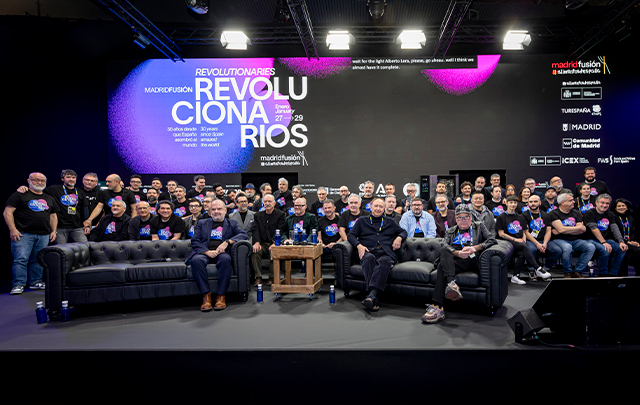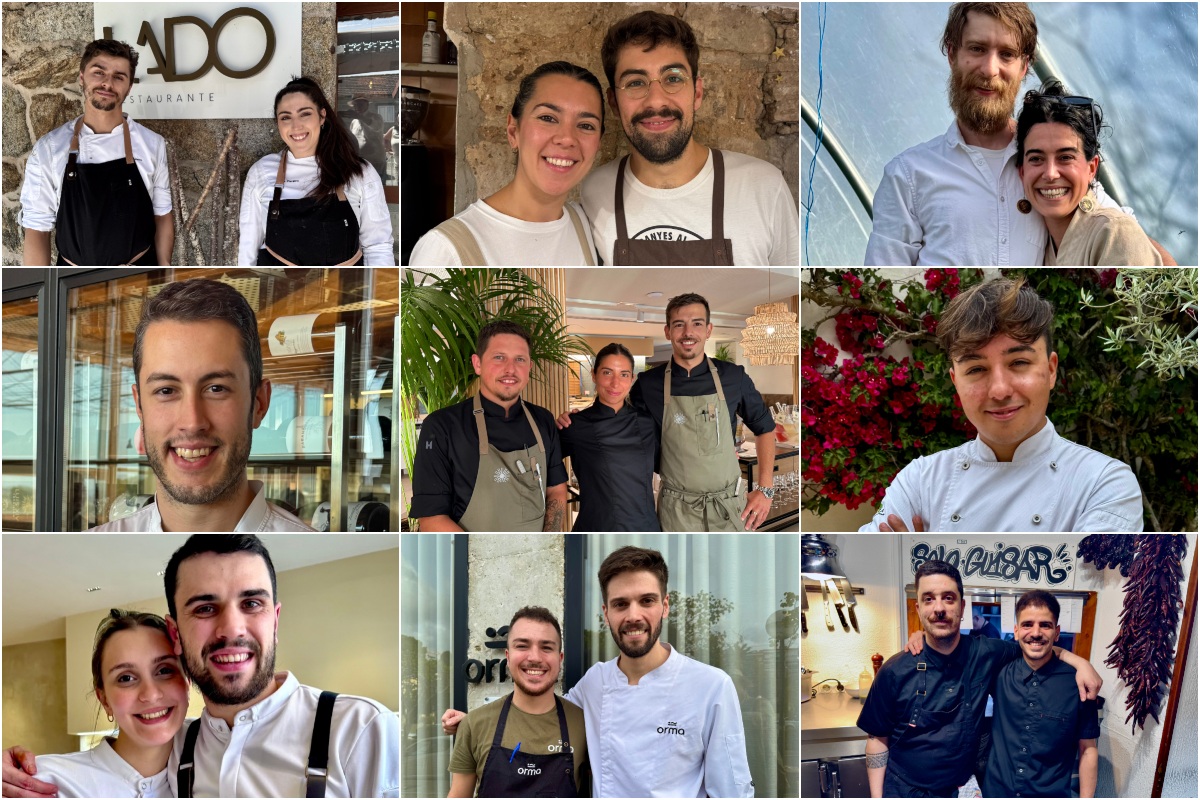News
A tribute to the pioneers of the Spanish cuisine revolution

Thirty years ago, Spanish chefs took high gastronomy by storm, paving the way for a brilliant generation of successors. The great architects of change believe that the future is secure, thanks to the young talent in the kitchens
Madrid Fusion wanted to celebrate the 30th anniversary of the unexpected and brilliant Spanish gastronomic revolution that "astonished the world", as the event's slogan put it. For this 23rd edition, Madrid Fusion wanted to bring together many of the protagonists of the culinary event's apogee. A "revolution without a name," according to José Carlos Capel, founder of Madrid Fusion, because definitions such as "molecular cuisine," "new Spanish cuisine," "conceptual cuisine," or "new nouvelle cuisine" have not caught on.
In a country with no tradition of gourmet cuisine, "it was a revolution without storming the citadel," said Benjamín Lana, president of Vocento Gastronomía and moderator of the event with Capel. "There won't be another revolution in the short term, but the future is promising thanks to new talent," said Capel, who reviewed the long history of a movement that began in 1992, a decade before the arrival of Madrid Fusión, and made Spain the world's leading power in fine cuisine.
Benjamín Lana invited Albert and Ferrán Adrià, the pioneers of this revolution, to take the stage. "Today it's time to celebrate and put aside all the problems we've had, as in all families, because we are a family," said the genius of El Bulli.
"We must not seek revolution, nor be obsessed with it; we must consolidate it. Revolutions are not planned, they happen," he added. For him, the key to the revolution was "the happiness I felt with my work" and he advised "not to make a drama out of it. These thirty years are a starting point, not the end of a revolution," he concluded.
Adrià thanked Pedro Subijana and Juan Mari Arzak, "who had the power to stop this revolution, and who jumped on the bandwagon and became our mirror.
New rules
"The revolution changed the rules of cooking and the way of understanding it, with a cry of freedom and rebellion," said Capel, who debated with Rafael García Santos, Marco Bolasco, Pau Arenós and Lisa Abenb, who gave their vision of that miracle, in which rebellion and the will to change were vital.
"With a hunger to learn, we became the world's leading gastronomic power," summarized García Santos. It was a revolution that changed the world," said Lisa Abenb, who spent a year at El Bulli writing a book. This revolution will only remain if someone tells the story," said Arenós. For Marco Bolasco, it was "the Schengen of cooking.
For Toni Sagarra, publicist and creative genius, "the most important thing about revolutions is the consequences, and that of chefs is to evolve in transit to new things." "This revolution has made us the world leader in haute cuisine. What was once France in the kitchen is now Spain, that is an undeniable truth," he concluded.
The stage was filled with revolutionaries wearing Madrid Fusión T-shirts, such as Andoni Luis Aduriz, Quique Dacosta, Joan Roca, Carme Ruscalleda, Dani García, Massimo Bottura, Gastón Acurio, Yohishiro Narisawa, Heston Blumenthal, Aitor Arregui, Ángel León, Cristóbal Muñoz, David Seijas, Elena Arzak, Martín Berasategui, Pablo Torreblanca, Ricard Camarena, and some twenty other colleagues.
In a technological display, everything that was said in the long debate was collected in a book that will be printed this Thursday.
Three wonderful decades
Ferran Adrià led this culinary revolution from the helm of El Bulli, his legendary restaurant in the faraway bay of Mont Roig, now a museum. It was the epicenter of change and the driving force behind a revolution that some compare to that of the Frenchman Georges Auguste Escoffier a century earlier, or that of the French "nouvelle cuisine" in the second half of the century, led by culinary geniuses such as Paul Bocuse and Michel Bras.
Restaurant Magazine was the international springboard for this phenomenon, naming El Bulli the best restaurant in the world in 2002, 2006, 2007, 2008 and 2009, and second best in 2003, 2005 and 2010. The New York Times contributed to the phenomenon by dedicating the cover of its Sunday paper in 2003 to Adriá's restaurant with a report entitled "The New Nouvelle Cuisine" and subtitled "How Spain became the new France".
The other focal points of this phenomenon were in the Basque Country, where chefs such as Juan Mari Arzak and Pedro Subijana encouraged the new Basque cuisine rather than confronting it. In Girona, the Roca family and their legendary Celler de Can Roca rose to first place in The Restaurant Magazine rankings in 2023 and 2015, and second place in 2011, 2012, 2014, 2016, and 2018.
The shock wave filled Spain with brilliant chefs at the head of restaurants with stars and suns in the most relevant guides - Ángel León, Pepe Solla, Dabiz Muñoz and an endless etcetera. Their legacy is now restaurants such as Disfrutar in Barcelona, winning the title of best in the world in last year's edition.
The future is bright, for almost everyone present, even if it is up in the air and, according to almost all the speakers, at the mercy of artificial intelligence, perhaps, but with the next generation or generations assured.


